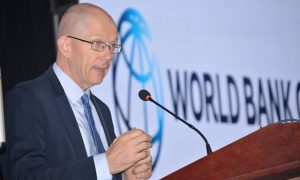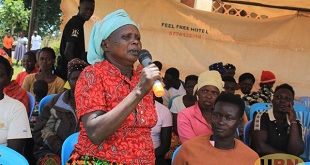
Kampala, Uganda | THE INDEPENDENT | Uganda has secured a financing package of about 1.1 Trillion Shillings from the World Bank improve service delivery in local governments.
This is additional funding to the 200 billion dollars received under the Uganda Intergovernmental Fiscal Transfers Program for Results,(UgIFT), to boost service delivery in education, health, water and environment and micro-irrigation. This will also include in areas hosting large populations of refugees.
Of the package, 890 billion shillings is a credit while 210 billion shillings will be a grant.
The overall aim is to strengthen the financing of local governments, increasing the overall level of funding and reducing the disparities in funding for service delivery across local governments.
Uganda’s public spending on social services remains low while allocations to education dropped by 111 billion shillings to 3.6 trillion shillings or 7.9 percent this year.

“UgIFT is also a crucial intervention at the local government level for maintaining financing of health and other basic services which have come under strain during the COVID-19 pandemic,” said Tony Thompson, World Bank Country Manager.
The original and additional UgIFT financing will construct, equip and staff at least 259 new secondary schools.
An estimated 1,000 existing primary schools will receive development grants to refurbish and equip their facilities to provide better learning environments and meet basic standards. Laboratories will also be constructed in secondary schools that do not have them.
A total of 14,000 primary and 1,400 secondary school teachers will be recruited in the least-staffed districts to enable them to meet minimum school staffing levels. Additional inspectors will also be recruited to meet a ratio of 1 inspector to 40 schools.
The grants for primary and secondary schools will enable schools to make instructional materials available to teachers and maintain facilities based on student populations.
In health, the funds will be used to equip, staff and upgrade 380 facilities to health center III levels.
Up to 500 health centres will be able to access development grants to rehabilitate, expand and equip their facilities to meet minimum standards.
At least 11,000 health workers will also be hired for the least-staffed districts to enable them to meet minimum facility staffing levels. Results-based financing will be mainstreamed, creating incentives for service delivery performance.
Allocations for essential medicines will be increased and the mechanisms for allocating those supplies and the transparency of allocations will be enhanced through digitization.
The other sectors to benefit from the funding are water and environment and small-scale irrigation to increase safe water coverage in the least served sub-counties, improving the functionality of existing potable water supply sources and enabling investments in water supply for public institutions.
An estimated 750,000 people will also benefit from new or repaired water facilities.
Districts and municipalities will promote environmental management functions initially focusing on the implementation of public investments including water resources management and actions against deforestation.
For micro-irrigation, up to 8,000 smallholder farmers in 40 districts will access matching grants to purchase and use micro-irrigation equipment, contributing to rising incomes and food security in rural areas through improved agricultural productivity and improving the climate resilience of the poor and vulnerable farming communities.
Rajab Namakoola, the Mbale district agricultural officer says that the interventions in the agriculture sector will go a long way in improving productivity as the seasons become more difficult to predict.
The World Bank has provided more than 10 billion dollars in financing to Uganda since 1963 while its current portfolio in Uganda comprises 24 operations worth 2.8 billion dollars.
******
URN
 The Independent Uganda: You get the Truth we Pay the Price
The Independent Uganda: You get the Truth we Pay the Price



